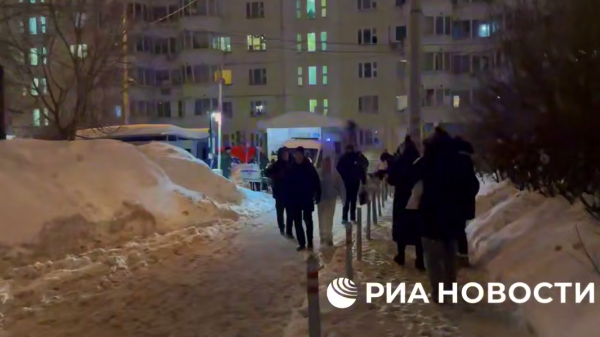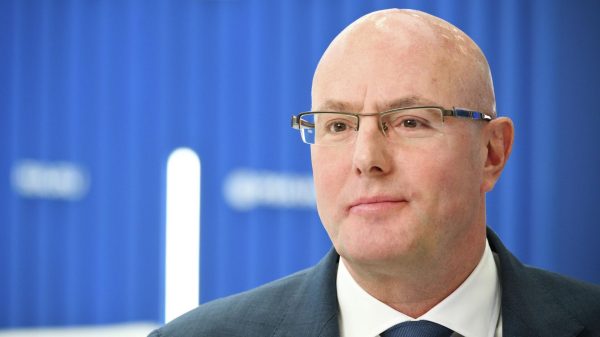
In Buenos Aires, the lockdown is only gradually easing after more than 200 days
Credit: Anita Pouchard Serra/Bloomberg
For more than 200 days, the citizens of Buenos Aires have lived in lockdown. Yet despite enduring one of the world’s longest quarantines, Argentina on Monday became just the fifth country to reach one million confirmed cases of Covid-19.
With the end still out of sight, residents of the coastal city are counting not just the financial cost of the pandemic but the deep psychological one too.
An initial 10-day general national quarantine was decreed by the Argentine government on March 20, but it was later extended to weeks, then months.
While the restrictions were lifted for large parts of the country in June, for residents of Buenos Aires and its metropolitan region, home to approximately 40 per cent of the country’s population, those 10 days became seven uninterrupted months of lockdown.
The economic consequences of such prolonged restrictions are severe and small business owners have been one of the groups hardest hit by the restrictions.
"When the quarantine came, I had to close my business completely. There came a time when I owed seven months of rent, six months of electricity, six months of gas, and union and accounting fees," says Daniel Aponte, whose bar in Lanús, a neighbourhood in Greater Buenos Aires, is now open but only for outdoor service on pavement tables.
"It’s a desperate situation because we’re very much in debt and we’re going to have to work a lot and wait a long time to catch up, and since we don’t know what’s going to happen next, it’s a terrible uncertainty, which has affected me disproportionately in terms of my state of mind," says Mr Aponte.
Coronavirus Argentina Spotlight Chart — Cases default
This situation is not unique to Mr Aponte. The country had more than 600,000 small businesses before lockdown, of which, according to a July report by the Argentine Chamber of Commerce and Services, more than 42,000 have already closed since the beginning of the pandemic.
More than 20 per cent of Argentina’s population works in informal jobs and, although companies are officially prohibited from laying off workers because of Covid-19, the collapse of these businesses has left hundreds of thousands of Argentines without work.
According to a study by the University of Buenos Aires’ psychology observatory, depression among the population has increased five-fold; three out of four Argentines have sleep problems and one in two have had to stop their daily activities to preserve their health.
"When compulsory isolation is prolonged, chronic stress begins to arrive, which is linked to anxiety disorders, depression and addictions," says Dr Patricio Cristóbal Rey, head of the teaching and research division of the mental health department at the university. "These symptoms also generate sleep problems and various physical ailments," he adds.
The situation is not aided by the grim irony that, despite Argentina being one of the countries with the highest number of psychologists in the world, few people can access the treatment that they need.
South America's Covid case rates
"There is a gap in treatment, which is the difference between people who have mental health needs and access to consultation and those who do not, which is very large”, says Martin Agrest, a clinical psychologist and research coordinator for Proyecto Suma, a civil organization created to provide mental health assistance.
“In high-income countries it is usually about 50 per cent of the people who do not have access, and in Argentina the figure is close to 70 per cent," he adds.
The consequences for those stuck at home can be severe. "This whole situation given me an arrhythmia and I have to use a Holter [portable heart monitor] to control it," says Candela Robledo, a 20-year-old who lives in the Buenos Aires proper. "I also have trouble sleeping, because I have trouble breathing due to this problem".
While the quarantine was eased a little in September, socialising is still limited to outdoor public spaces and running permitted only at certain times. Residents talk of the numbing effect that such isolation brings.
"Having more than 200 days without pleasant stimuli, such as social meetings, trips or outings affected my motivation… even more so knowing that the economic situation in my context is terrifying," says Azul Weimann, who is in the third year of studying to be a nutritionist, and who, in addition to sleeping problems, has also begun to suffer from an eating disorder. "I have lost my appetite, I eat only once a day, not because I don’t have enough food, but because I don’t want to eat.

Julieta, who has experienced panic attacks in lockdown
Credit: Courtesty of interviewee/Mialgros Costabel
For those with pre-existing conditions, quarantine has been a particular torment. "I was quite distressed, I had some sporadic anxiety attacks and anything unbalanced me. I had started therapy a few months ago, so I was still reluctant to undergo treatment," says Julieta, who works nine hours a day from her home.
Her symptoms began to worsen, to the point that she had trouble getting out of bed and was unable to eat.
"Then the worst started. The anxiety attacks turned into panic attacks, because I would stop working and disconnect, and I would start feeling bad and that would lead to a panic attack".
Meanwhile, children have also suffered. In the wider metropolitan area of Buenos Aires, those aged under 15 can only go out with their parents to go shopping. In the city itself, which is governed independently, the restrictions are less stringent, allowing parents to go out with their children twice a week, for a limited time, and on weekends. In spite of this, contact with their classmates and teachers has been totally lost for more than half a year.
"My son has just turned 15, and although he is a very good student and always communicates with his classmates, lately he does not have the same enthusiasm," explains Gabriela Vianco.
"He is also afraid that his father or I will go out to work. Last week we started going to work for a few hours and he sent me a message saying that he missed us and that it wasn’t the same without us at home, so we decided not to leave him alone and go to work one day each, although he doesn’t like that either because, I guess, he’s afraid we’ll get sick."
While Buenos Aires has tested the water with a very gradual easing of restrictions, the broader picture in Argentina remains worrying. When all this is over, the Government will find itself having to rebuild not just a crumbled economy but the psychological health of a nation.




















































Свежие комментарии